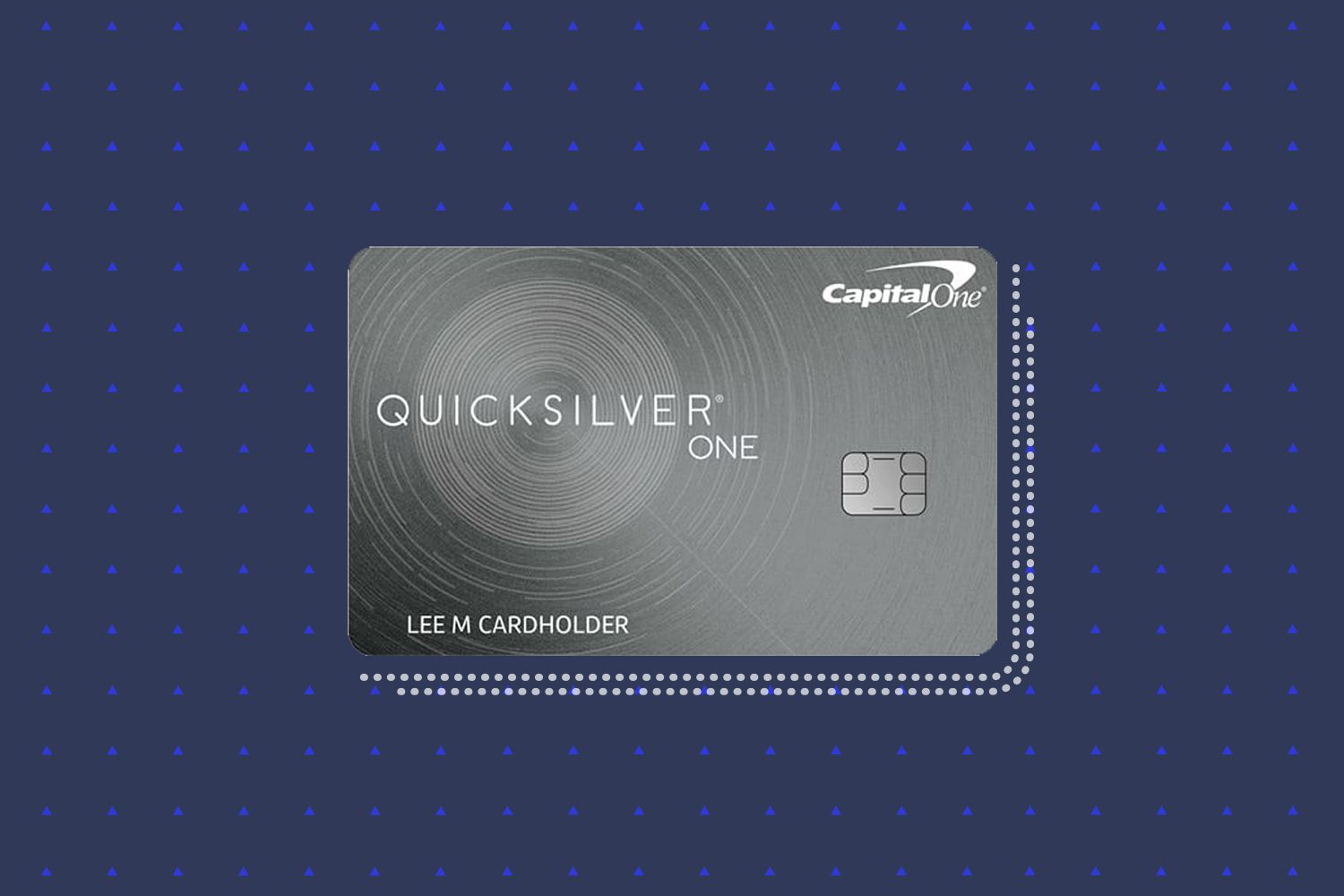Home>Finance>What FICO Score Does Wells Fargo Use For Credit Cards


Finance
What FICO Score Does Wells Fargo Use For Credit Cards
Published: March 6, 2024
Find out which FICO score Wells Fargo uses for credit card applications. Understand the impact of your finance decisions on your creditworthiness.
(Many of the links in this article redirect to a specific reviewed product. Your purchase of these products through affiliate links helps to generate commission for LiveWell, at no extra cost. Learn more)
Table of Contents
Introduction
Understanding the Role of FICO Scores in Credit Card Applications
Welcome to the world of credit cards and FICO scores! If you’ve ever applied for a credit card or plan to do so in the future, understanding the role of FICO scores is crucial. Your FICO score plays a pivotal role in determining your creditworthiness and the terms you may receive on a credit card, including the interest rate and credit limit. In this article, we’ll delve into the significance of FICO scores, particularly in the context of credit card applications, and explore the specific FICO scores utilized by Wells Fargo for their credit card evaluations.
As we embark on this journey to unravel the mysteries of FICO scores and their impact on credit card approvals, it’s essential to grasp the fundamentals. Whether you’re a seasoned credit card user or a newcomer to the world of personal finance, this comprehensive guide will equip you with the knowledge needed to navigate the intricacies of FICO scores and make informed decisions when applying for credit cards.
Understanding FICO Scores
Before delving into the specific FICO scores utilized by Wells Fargo for credit card evaluations, it’s imperative to comprehend the essence of FICO scores. FICO, which stands for Fair Isaac Corporation, is a data analytics company that developed the FICO scoring model, widely used by lenders to assess the credit risk of potential borrowers.
A FICO score is a three-digit number ranging from 300 to 850, with higher scores indicating lower credit risk. This score is calculated based on various factors, including payment history, amounts owed, length of credit history, new credit, and types of credit used. These components collectively shape an individual’s creditworthiness and financial reliability, offering lenders valuable insights into the likelihood of timely repayment.
Understanding the weight of each factor in determining a FICO score is crucial. Payment history, for instance, carries significant importance, as it reflects an individual’s track record of making timely payments on credit accounts. Amounts owed, which considers the utilization of credit and outstanding balances, also plays a pivotal role in FICO score calculations. The length of credit history showcases an individual’s experience with credit, while new credit and credit mix provide additional dimensions for evaluating credit behavior.
As consumers, comprehending the intricacies of FICO scores empowers us to take proactive measures to strengthen our credit profiles. By maintaining a positive payment history, keeping credit card balances in check, and strategically managing credit accounts, individuals can work towards achieving and maintaining favorable FICO scores, thereby enhancing their financial prospects and access to credit.
FICO Scores Used by Wells Fargo
When it comes to credit card applications with Wells Fargo, understanding the specific FICO scores employed for evaluations is paramount. Wells Fargo utilizes FICO scores as a key determinant in assessing an individual’s creditworthiness and suitability for their credit card offerings. While the exact FICO score versions used by Wells Fargo may vary over time, gaining insights into their historical preferences can provide valuable guidance for credit card applicants.
Wells Fargo has historically relied on various FICO score versions, including FICO Score 9 and FICO Bankcard Score 2. FICO Score 9, the latest iteration of the FICO scoring model, incorporates updated methodologies to enhance the accuracy of credit assessments. This version emphasizes factors such as trended data and a more forgiving approach towards isolated late payments, offering a more nuanced representation of an individual’s credit behavior. On the other hand, FICO Bankcard Score 2 is tailored specifically for credit card applications, focusing on credit-related behaviors relevant to revolving credit products.
It’s important to note that while these FICO score versions provide a foundation for evaluating credit card applications, Wells Fargo may also consider additional factors beyond FICO scores, such as income, employment status, and existing banking relationships. By leveraging a holistic approach to credit evaluations, Wells Fargo aims to make informed decisions that align with their risk management objectives while catering to the diverse financial needs of their customer base.
Understanding the specific FICO scores utilized by Wells Fargo underscores the significance of maintaining healthy credit profiles aligned with the parameters emphasized by these scoring models. By proactively managing credit accounts, making timely payments, and optimizing credit utilization, individuals can enhance their eligibility for Wells Fargo’s credit card products, potentially securing favorable terms and benefits.
Importance of FICO Scores for Credit Cards
When it comes to credit card applications, the importance of FICO scores cannot be overstated. FICO scores serve as a critical yardstick for lenders, including credit card issuers, to gauge the creditworthiness of applicants and make informed decisions regarding approval, credit limits, and interest rates. Understanding the significance of FICO scores in the context of credit cards is pivotal for individuals seeking to optimize their chances of securing favorable credit card terms.
For credit card issuers like Wells Fargo, FICO scores play a central role in assessing the risk associated with extending credit to potential cardholders. Higher FICO scores typically signal lower credit risk, potentially leading to more favorable terms, including lower interest rates and higher credit limits. Conversely, lower FICO scores may result in less advantageous terms or, in some cases, lead to application denials.
Moreover, FICO scores can influence the types of credit card offers individuals receive. Those with excellent FICO scores may qualify for premium rewards cards, featuring lucrative benefits such as cashback incentives, travel rewards, and enhanced perks. On the other hand, individuals with lower FICO scores may be steered towards secured or entry-level credit cards designed to help build or rebuild credit.
Understanding the pivotal role of FICO scores empowers individuals to take proactive steps to enhance their credit profiles and bolster their eligibility for desirable credit card offerings. By maintaining healthy credit habits, such as making timely payments, managing credit utilization, and monitoring credit reports for accuracy, individuals can strive to elevate their FICO scores, thereby unlocking access to a broader spectrum of credit card options and optimizing the associated benefits.
How to Improve Your FICO Score
Improving your FICO score is a proactive endeavor that can yield substantial benefits, particularly when it comes to enhancing your eligibility for credit cards and securing favorable terms. Whether you’re aiming to boost your FICO score for an upcoming credit card application or seeking to fortify your overall creditworthiness, implementing strategic measures can make a meaningful impact on your credit profile.
One fundamental step in improving your FICO score involves maintaining a stellar payment history. Timely payments across all credit accounts, including credit cards, loans, and other financial obligations, can significantly bolster your FICO score over time. Conversely, late or missed payments can exert a detrimental effect on your score, underscoring the importance of consistent payment discipline.
Another pivotal factor influencing FICO scores is credit utilization, which pertains to the proportion of available credit that you’re using. Keeping credit card balances low in relation to your credit limits can positively influence your FICO score, signaling responsible credit management. Striving to keep credit utilization below 30% is a widely recommended practice for optimizing this aspect of your credit profile.
Furthermore, the length of your credit history plays a role in FICO score calculations. While this factor may not be immediately modifiable, maintaining longstanding, well-managed credit accounts can contribute to a positive credit history over time. Additionally, exercising caution when applying for new credit and diversifying the types of credit accounts in your portfolio can further enhance your credit profile and FICO score.
Regularly monitoring your credit report for inaccuracies and addressing any discrepancies can also support FICO score improvement. By promptly rectifying errors and ensuring the accuracy of reported information, you can safeguard the integrity of your credit profile and mitigate potential adverse impacts on your FICO score.
Ultimately, improving your FICO score demands a concerted effort to cultivate healthy credit habits and exercise prudent financial management. By adhering to these best practices and remaining diligent in your credit-related endeavors, you can work towards elevating your FICO score, amplifying your creditworthiness, and positioning yourself for enhanced opportunities in the realm of credit cards and other financial products.
Conclusion
As we conclude our exploration of FICO scores and their relevance to credit card applications, it’s evident that these numerical representations wield substantial influence over individuals’ access to credit and the associated terms. The interplay between FICO scores and credit card evaluations underscores the significance of maintaining robust credit profiles, characterized by responsible financial behavior and prudent credit management.
For prospective credit card applicants, comprehending the specific FICO scores utilized by financial institutions such as Wells Fargo is pivotal, as it empowers individuals to align their credit-related endeavors with the parameters emphasized by these scoring models. By cultivating positive credit habits, such as making timely payments, optimizing credit utilization, and diversifying credit accounts, individuals can endeavor to fortify their credit profiles and bolster their eligibility for desirable credit card offerings.
Furthermore, the journey to improving FICO scores is a dynamic process that demands ongoing vigilance and commitment to sound financial practices. By embracing the tenets of responsible credit management, including prudent payment habits, judicious credit utilization, and proactive credit monitoring, individuals can strive to elevate their FICO scores, enhancing their financial prospects and broadening their access to credit opportunities.
Ultimately, the symbiotic relationship between FICO scores and credit card applications underscores the pivotal role of these numerical assessments in shaping individuals’ credit experiences. By embracing financial literacy, exercising prudence in credit-related endeavors, and leveraging insights into FICO score dynamics, individuals can navigate the credit landscape with confidence, positioning themselves for favorable credit card outcomes and sustained financial well-being.














